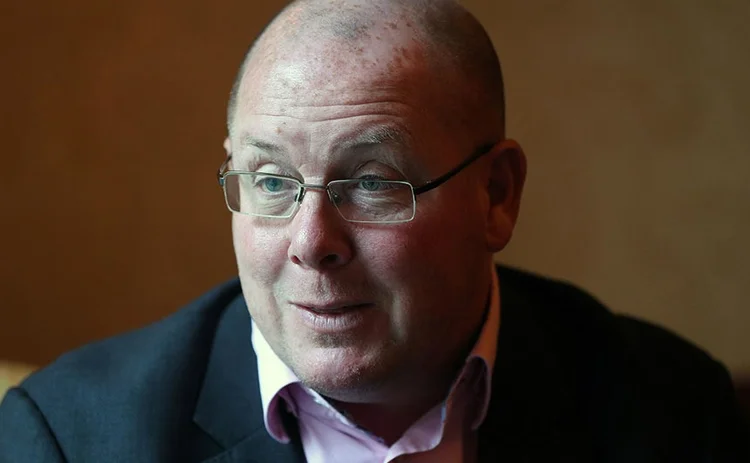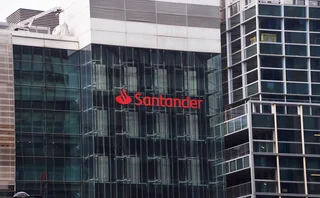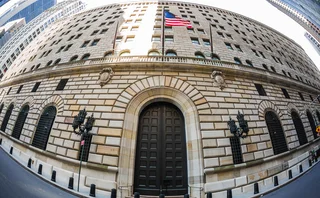
Leeson: risk managers should be personally liable for trades
Former rogue trader says new UK rules could "change the way people look at risk"

Former rogue trader Nick Leeson has welcomed the UK's new rules that make senior risk managers personally accountable for the positions put on by traders under their jurisdiction.
Leeson, the former Barings Bank trader whose £827 million ($1.4 billion) losses on unauthorised trades in the Singaporean and Japanese futures markets led to the collapse of the UK merchant bank in 1995, says a culture still exists within banks where traders are not sufficiently challenged to explain complex, multi-legged trades.
"The risk managers have to take more on. If a risk manager doesn't understand the trade a star trader is trying to put on, there has to be a way of stopping them. Someone on the risk committee has to say that they fully understand it, and that they're going to take responsibility for it. To this day, a lot of traders are still able to railroad certain trades through. Until that changes, there will always be a problem," said Leeson, who gave the keynote address at the Risk South Africa conference in Cape Town on March 10.
He welcomed the UK's Senior Managers Regime's attempts to tackle the issue. The regime, which entered into force this week, makes a "reckless" decision that causes a bank to fail a criminal offence carrying a maximum of seven years in prison and an unlimited fine. The rules apply to individuals at banks who fulfil 17 designated senior management functions, ranging from the chief executive and heads of risk and finance to the chairs of the risk, audit and remuneration committees.
Fines have been astronomical over the last few years and clearly haven't made any impact
Nick Leeson
"If the Senior Managers Regime is implemented in the way that it's deemed to want to work, then it has the potential to change the way people look at risk within their organisation. People will be far more focused on challenging [staff], and challenging what's going on in the organisation below them if they think there's personal responsibility there. Fines have been astronomical over the last few years and clearly haven't made any impact," said Leeson.
Leeson suggested the rules marked an evolution in the Bank of England's approach to conduct risk and were a far cry from the regime that held sway when it regulated Barings.
"The Bank of England was the regulator during my time at Barings. They weren't particularly good," he said.
Writing on Risk.net this week, Paul Fisher, executive director at the Bank of England and former deputy head of the Prudential Regulation Authority, said the rules were designed to foster a culture of personal responsibility.
"Their clear purpose is to make it clear who is accountable for what within a firm. The foremost objective of that is not so we know who to punish when things go wrong. It is to make sure someone is taking full responsibility for the right outcomes so misbehaviour becomes very much rarer," he said.
Only users who have a paid subscription or are part of a corporate subscription are able to print or copy content.
To access these options, along with all other subscription benefits, please contact info@risk.net or view our subscription options here: http://subscriptions.risk.net/subscribe
You are currently unable to print this content. Please contact info@risk.net to find out more.
You are currently unable to copy this content. Please contact info@risk.net to find out more.
Copyright Infopro Digital Limited. All rights reserved.
As outlined in our terms and conditions, https://www.infopro-digital.com/terms-and-conditions/subscriptions/ (point 2.4), printing is limited to a single copy.
If you would like to purchase additional rights please email info@risk.net
Copyright Infopro Digital Limited. All rights reserved.
You may share this content using our article tools. As outlined in our terms and conditions, https://www.infopro-digital.com/terms-and-conditions/subscriptions/ (clause 2.4), an Authorised User may only make one copy of the materials for their own personal use. You must also comply with the restrictions in clause 2.5.
If you would like to purchase additional rights please email info@risk.net
More on Risk management
Quant Finance Master’s Guide 2025
Risk.net’s guide to the world’s leading quant master’s programmes, with the top 25 schools ranked
Regionals built first-line defences pre-CrowdStrike
In-business risk teams vary in size and reporting lines, but outage fears are a constant
Op risk data: Santander in car crash of motor-finance fail
Also: Macquarie fined for fake metals trade flaws, Metro makes AML misses, and Invesco red-faced over greenwashing. Data by ORX News
Public enemy number one: the threat to information security
Nearly half of domestic and regional banks report risk appetite breaches amid heightened sense of insecurity
Credit risk transfer, with a derivatives twist
Dealers angle to revive market that enables them to offload counterparty exposures, freeing up capital
Op Risk Benchmarking 2024: the banks
As threats grow and regulators bore down, focus shifts to the first line
Fed stress-testing operational readiness of discount window
Experts say consultation on improved ops should be accompanied by focus on willingness to borrow
Millennium risk manager defends leverage in basis trade
“Gross notional measures don’t equate to market risk,” says Scott Rofey








